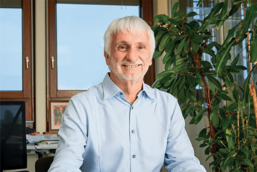DNDi: Medicine Makers Without Borders
The Drugs for Neglected Diseases initiative is doing incredible work – but few realize the true extent of its activities, and their potential to improve health
Angus Stewart | | Gallery
The Drugs for Neglected Diseases initiative (DNDi) is a popular organization here at The Medicine Maker HQ – and not just because we share an orange brand color with them.
No, we love cheering on DNDi because of the immense (and unfailingly practical) efforts they put into developing affordable, accessible medicines for neglected diseases that so often take the greatest toll on our world’s most vulnerable populations, who are largely spread across the least and less wealthy countries of the global south. Where commercial pharma won’t go, DNDi does – and all the while modeling a mode of drug discovery that is based on free collaboration and open science. Despite this rejection of conventional for-profit practices, DNDi have proven repeatedly that they are ready, willing, and more than able to set up partnerships with mainstream pharmaceutical companies.
To celebrate and showcase DNDi’s work, we launched a podcast series about them. Across six episodes, we examined DNDi’s projects from a multitude of angles and spoke in depth with both its members and collaborators – from university labs and rural African outposts to Google-owned tech leaders and COVID moonshots. We’d love for you to listen to that series, but we think you’ll also enjoy reading the pieces below, which make up a digital companion feature that includes transcripts, extracts from related coverage, and an original contribution from the DNDi’s Discovery Open Innovation Leader, Ben Perry.
Dive in and enjoy!
Teaser Image Copyright : Lameck Ododo - DNDi
Between studying for my English undergrad and Publishing master's degrees I was out in Shanghai, teaching, learning, and getting extremely lost. Now I'm expanding my mind down a rather different rabbit hole: the pharmaceutical industry. Outside of this job I read mountains of fiction and philosophy, and I must say, it's very hard to tell who's sharper: the literati, or the medicine makers.
























